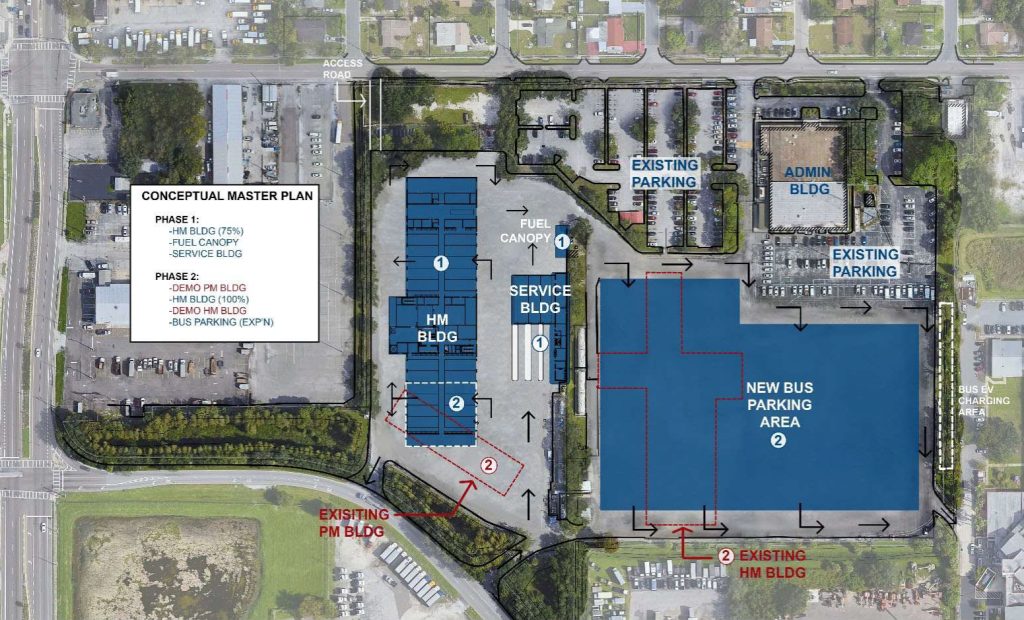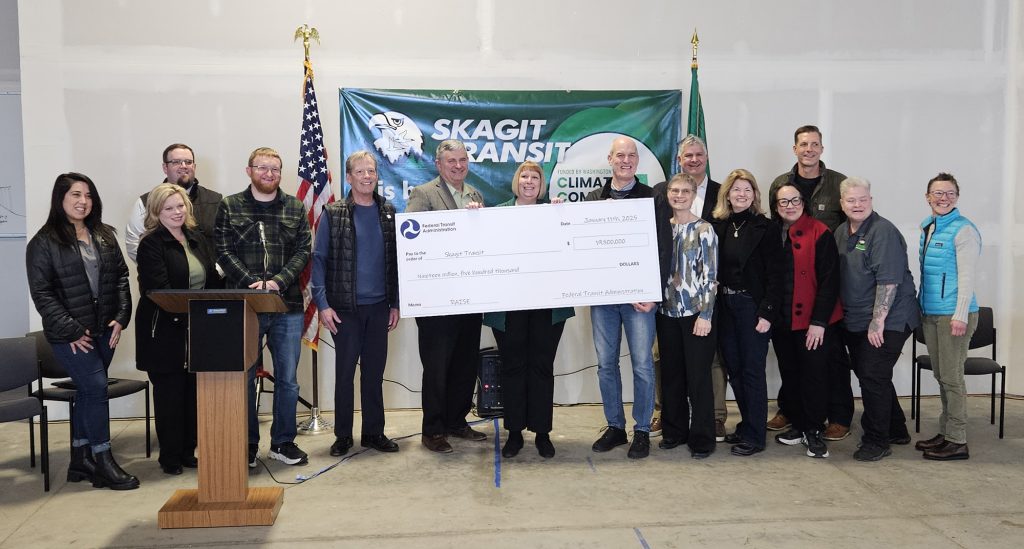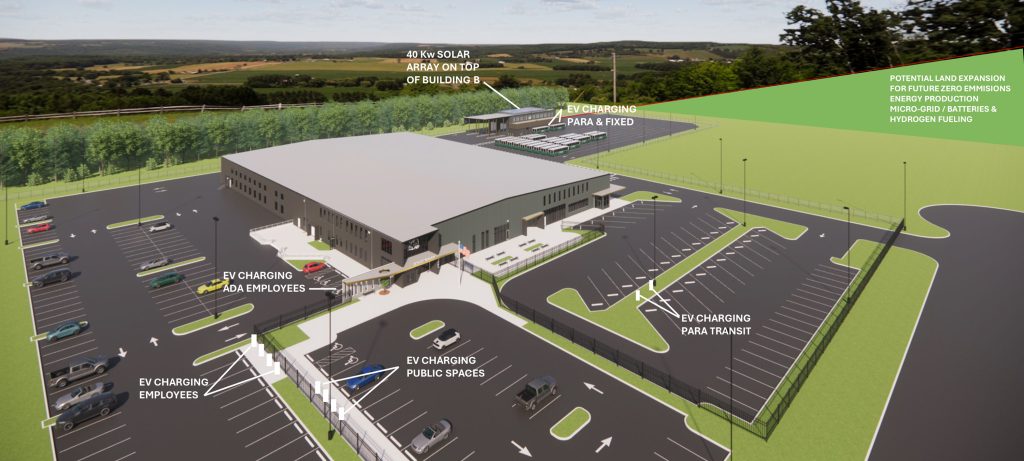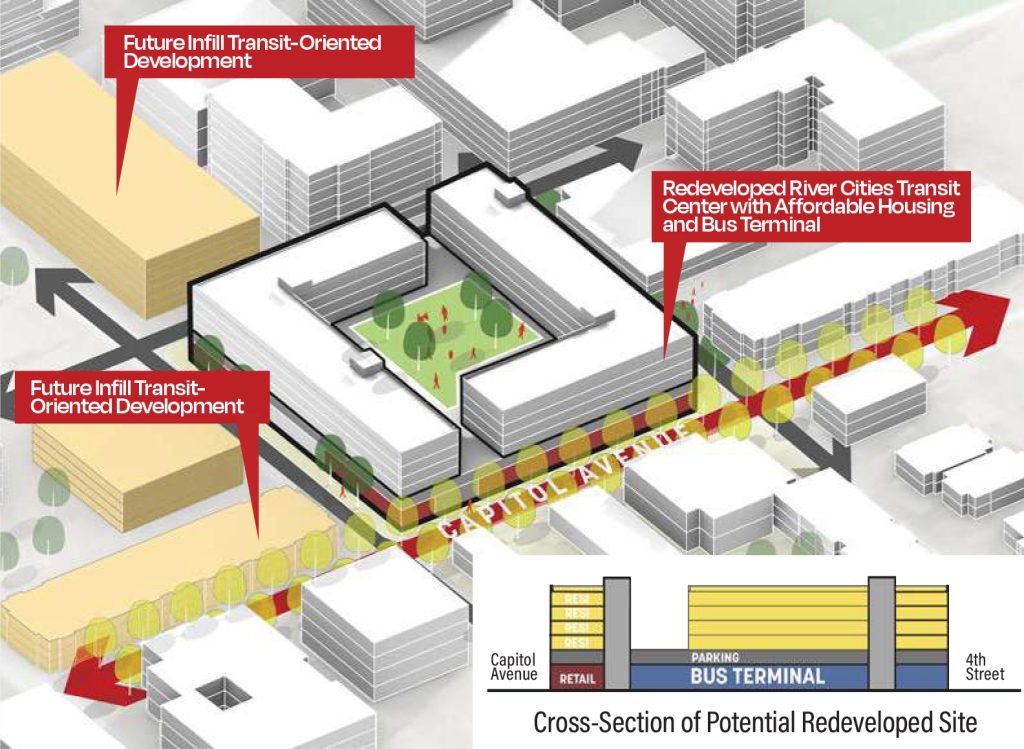RAISE Grants Help Improve Service for Communities Nationwide
1/16/2025

The Hillsborough Transit Authority (HART), Tampa, FL, has been awarded $23.3 million through USDOT’s Rebuilding American Infrastructure with Sustainability and Equity (RAISE) program. The grant is the largest funding award in HART’s history and will support Phase 1 of its Maintenance Site Remediation and Facility Modernization Project.
“The RAISE grant funding is crucial and will enable HART to modernize our facilities and enhance operational efficiency, paving the way for a greener, more sustainable transit system,” said HART CEO Scott Drainville. “We thank the Department of Transportation for recognizing the importance of this project and supporting HART’s vision for the future of public transportation in our region.”
Phase 1 of the project focuses on redeveloping a heavy maintenance facility site to meet the current and future needs of the HART fleet and operations and advances the agency’s mission to provide safe, efficient, and sustainable public transportation throughout Hillsborough County. Key components include:
- Stormwater Remediation: Implementing stormwater management solutions to enhance environmental sustainability and regulatory compliance.
- Transit Vehicle Service Lane: Constructing a state-of-the-art service lane to improve the efficiency of vehicle maintenance and operations.
- Security Enhancements: Installing perimeter security fencing to ensure the safety and security of HART assets and personnel.
The site remediation and modernization project lays the foundation for a modernized facility capable of supporting a fleet of up to 250 compressed natural gas buses.

Skagit Transit, Burlington, WA, has been awarded a $19.5 million RAISE grant to aid the construction of its new maintenance, operations, and administration facility.
The project is Skagit Transit’s largest capital project and consists of seven phases.
“It was just a few months ago that we gathered here to celebrate the completion of Phase 1 of our facility,” said Skagit Transit CEO Crystle Stidham. “During that time, we reflected on the challenges faced throughout the project, and we couldn’t help but acknowledge that this journey has spanned nearly a decade.”
Phase 2 of the project consists of building new offices, conference rooms, maintenance bays, and a parts warehouse. The phase includes the installation of EV charging stations. Phase 3 will include installation of a solar array, expanded EV charging facilities, a modernized bus wash and fueling station, and improved parking areas.
“I was here in October to celebrate Phase 1, and now, thanks to the hard work that all of you did, this $19.5 million RAISE grant award brings you one step closer to funding the next phases of this project,” said Rep. Rick Larsen (D-WA), ranking member of the U.S. House Committee on Transportation and Infrastructure.

In North Little Rock, AR, Rock Region METRO has been awarded a $5.4 million RAISE grant—its largest competitive grant award to date—to plan a transit-oriented development at the River Cities Travel Center. This is the first RAISE grant Arkansas’ largest public transit agency has received.
The River Cities Travel Center, opened in 2000, is the agency’s sole transit station and the only transit station in Pulaski County, serving local intra-city transit service. Thirteen of METRO’s local fixed routes terminate here, with the station hosting hundreds of passenger trips each day. It is within the agency’s Connect East Little Rock-Riverdale microtransit zone and within two blocks of METRO Streetcar Blue Line.

“METRO not only improved the transit passenger experience but also downtown Little Rock when the travel center was built on the city block between 4th Street & Capitol Avenue and Rock & Cumberland Streets, spurring development along surrounding streets,” said Justin Avery, Rock Region METRO chief executive officer. “Although our team has worked hard to keep the center in a state of good repair, the facility is now almost 25 years old and is ready for re-investment. We are thankful for this planning grant so we can continue engaging our community and optimizing the top stop in the entire METRO system for not only transit riders but also our neighborhood, city, and capital city region.”
Stakeholder meetings unveiled a community-supported desire for the transit hub to include entry-level market-rate housing, a health clinic, a child development center, METRO administrative space, and a community meeting space, along with ground-level retail.